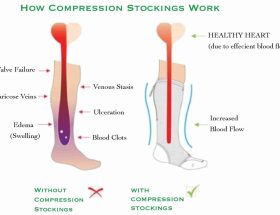Weight loss is a topic that many people are interested in, but it can also be a subject filled with myths and misconceptions. In this article, we will explore some of the most common weight loss myths and provide you with the facts on what to ignore and what to follow.
Myth 1: Carbohydrates Are Always Bad for Weight Loss
Many people believe that cutting out carbohydrates completely is essential for weight loss. While it is true that reducing carb intake can aid in weight loss, it is important to understand that not all carbs are created equal. Complex carbohydrates found in whole grains, fruits, and vegetables are essential for providing energy and important nutrients. It’s best to focus on consuming the right types of carbs in appropriate quantities rather than completely avoiding them.
Myth 2: Skipping Meals Leads to Weight Loss
Some individuals think that skipping meals can help them shed pounds quickly. However, this approach can be counterproductive. When you skip a meal, your body’s metabolism slows down to conserve energy. This can lead to overeating later in the day and disrupt your body’s natural rhythm. Instead, opt for regular, balanced meals and snacks to keep your metabolism active and maintain a healthy eating pattern.
Myth 3: All Fats Should Be Avoided
The idea that all fats are bad for weight loss is simply untrue. While it’s important to minimize consumption of unhealthy saturated and trans fats, certain healthy fats are beneficial for weight loss. Sources such as avocados, nuts, and olive oil contain monounsaturated and polyunsaturated fats that can help keep you feeling full and satisfied. Including these healthy fats in moderation can actually promote weight loss.
Myth 4: Rapid Weight Loss Is Sustainable
The promise of rapid weight loss can be appealing, but it’s often not sustainable in the long run. Crash diets or extreme calorie restriction can lead to muscle loss, nutrient deficiencies, and a slowed metabolism. Instead, aim for a gradual weight loss of 1-2 pounds per week, which is more likely to be maintained over time and promotes overall health.
Myth 5: Exercise Alone Is Sufficient for Weight Loss
While exercise is vital for overall health and can aid in weight loss, it is not a magic cure on its own. Weight loss occurs when you create a calorie deficit, which involves both exercise and a balanced diet. Physical activity helps burn calories and build muscle, but a proper diet is equally important. Combining both exercise and a nutritious diet is the most effective approach for weight loss.
Myth 6: Supplements and Detoxes Guarantee Weight Loss
Many products claim to have miraculous weight loss properties, but the truth is that there are no magic pills or shortcuts. Supplements and detoxes may provide temporary weight loss or water weight reduction, but they do not offer a long-term solution. Healthy weight loss is achieved through sustainable lifestyle changes, not quick fixes.
What to Follow
Now that we have debunked some common weight loss myths, here are some key tips to follow for effective and sustainable weight loss:
1. Create a Calorie Deficit
To lose weight, you need to consume fewer calories than you burn. This can be achieved through a combination of a balanced diet and regular physical activity.
2. Focus on Whole Foods
Eat a variety of whole, unprocessed foods such as fruits, vegetables, lean proteins, whole grains, and healthy fats. These provide essential nutrients and are often lower in calories compared to processed foods.
3. Portion Control
Be mindful of your portion sizes to avoid overeating. Use smaller plates or bowls and listen to your body’s hunger and fullness cues.
4. Stay Hydrated
Drinking an adequate amount of water throughout the day can help satisfy cravings and keep you hydrated without adding calories.
5. Move Your Body
Incorporate regular physical activity into your routine. Aim for a mix of cardiovascular exercises, strength training, and flexibility exercises to promote overall fitness.
6. Get Enough Sleep
Having sufficient sleep is crucial for weight management. Lack of sleep disrupts hormone regulation, increases appetite, and can lead to unhealthy food choices.
Conclusion
When it comes to weight loss, it’s important to separate fact from fiction. By understanding which myths to ignore and which tips to follow, you can embark on a successful weight loss journey. Remember, sustainable weight loss involves a combination of healthy eating, regular exercise, and making lifestyle changes that you can maintain in the long term.







